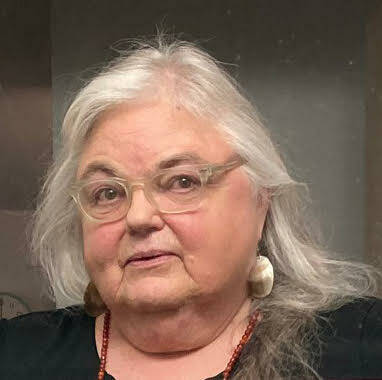By Peggy Sue McRae,
Journal contributor
There are at least ten million people ready and eager to tell you what to eat. Far be it for me to add to the cacophony of voices and yet, there is nothing like a health concern to make you re-examine your relationship to food. Following my recent diagnosis with A-Fib, a reassessment of contributing lifestyle factors was clearly in order.
A diet often recommended for health is the Mediterranean diet1. This diet is inspired by the longevity lifestyles of hearty traditional Greek and Italian folk with their olive oil, seafood, vegetable gardens, goat cheese and dancing. More a lifestyle than a diet, this approach appeals to me.
It starts with produce. Lots of fruits and vegetables form a solid base for the Mediterranean food pyramid. Next, whole grains, beans, legumes and nuts provide a variety of nutrition and plant protein. Olive oil, high in healthy unsaturated fats is at the heart of the Mediterranean diet.
Next, fish and seafood provide protein and are low in saturated fat while they contain beneficial vitamin D and omega-3 fatty acids. Up into the next rung of the food pyramid, poultry, eggs, milk and cheese are recommended but are to be eaten sparingly. They provide protein, calcium, and minerals but also contain saturated fat.
In the tiny top triangle of the pyramid are meats and sweets. These foods high in saturated fat and sugar are not strictly forbidden but are to be enjoyed rarely. Processed foods, fried food and sugary desserts are to be avoided.
The beauty of the Mediterranean diet is that it is broad enough and satisfying enough to be adopted as a sustainable lifestyle. For slow but steady progress toward health, it is a sensible choice. There are times however when a sudden health crisis may indicate a strategy with quicker results. I recently asked Laura McKee about changes she made after a TIA (mini-stroke).
Motivated to bring down both her cholesterol and her weight, Laura is using a modification of the Keto diet. Unlike the standard Keto diet, she is limiting fats and red meat.
Laura’s strategy has paid off with a dramatic lowering in her cholesterol. Well-done Laura! Once her initial goals are reached, she plans to adopt a maintenance routine. Said Laura, “For me there are no set rules to these diets, we all know what we need to be eating, it is just a matter of our own commitment to them.”
If changing your diet is something you need to do, find a solution that works for you. In the words of Zen master Thich Nhat Hanh, “Something can be delicious and not healthy, so we have to be very careful about what we prepare and what we eat. Healthy is good, but healthy and not delicious isn’t good either. You have to have both.” Here’s to healthy and delicious eating!




